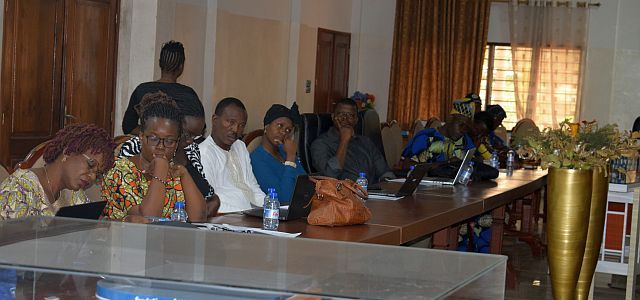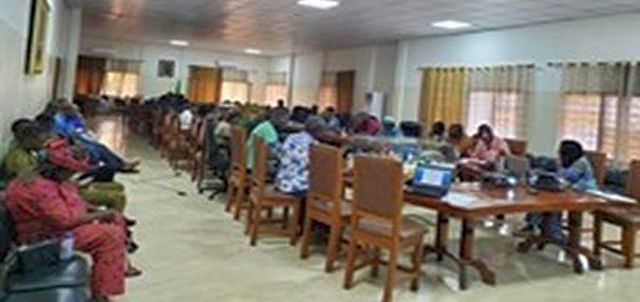This initiative supported by NIYEL through the project Sanitize Garbage and Liquid aims to facilitate the emptying of household pits during these operations.
This sensitization comes at a time when the sanitation sub-sector in Benin is making progress with the setting up of faecal sludge treatment plants (STBV). Two stations have already been built to serve the communes of Grand Nokoue, one in the Commune of Abomey-Calavi, and the second in the Commune of Semè-Podji. They will soon be made available to the waste collectors for dumping. A good sensitization aims at contributing to a good use of these infrastructures.
The session was attended by about forty actors, including a sample of neighborhood chiefs, as well as actors from the waste management and sanitation company in Grand-Nokoué, members of CANEA, officials from the technical services of the five town halls, and also media actors.
The general objective of the session was to sensitize participants on the respect of standards for the construction of sanitation facilities in households, for a good management of sewage sludge.
 It allowed to inform the participants on the characteristics of the autonomous sanitation structures, and the participants to appropriate the standards to be followed for the installation of the sanitation structures in the households.
It allowed to inform the participants on the characteristics of the autonomous sanitation structures, and the participants to appropriate the standards to be followed for the installation of the sanitation structures in the households.
The autonomous sanitation currently in Benin was generally made without the respect of the adequate standards. For the well-being of all, it was necessary to inform the populations and households to update themselves for a good maintenance of these works.
The main urban districts of the five communes were represented by their leaders at this session. They were mandated to popularize the information received to their respective populations with the support of the media who participated in the awareness session.
